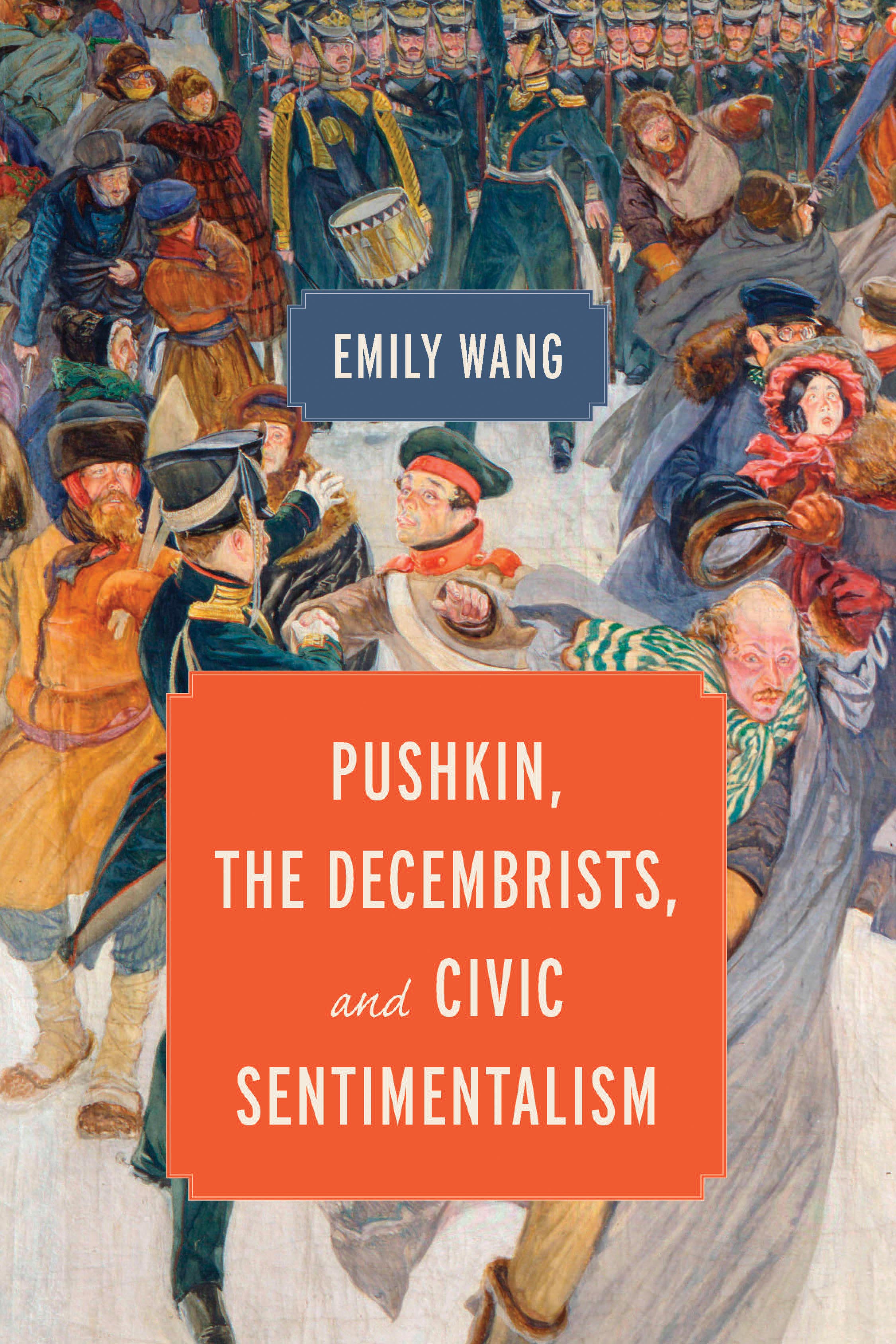
A book talk with Dr. Emily Wang
Monday, March 3, 2025 - 5:30pm
College Hall 209
In December 1825, a group of liberal aristocrats, officers, and thinkers mounted a coup against the tsarist government of Russia. Inspired partially by the democratic revolutions in the United States and France, the Decembrist revolt was unsuccessful; however, it led Russia’s civil society to new avenues of aspiration and had a lasting impact on Russian culture and politics. Many writers belonged to the conspiracy, while others, including the poet Alexander Pushkin, helped inspire the uprising without directly participating in it. While the activities of the Decembrists and Pushkin’s ambiguous involvement have been well covered by historians, Emily Wang takes a novel approach, examining the emotional and literary motivations behind the movement and its dramatic, unsuccessful denouement.
Through careful readings of the literature of Pushkin and others active in the northern branch of the Decembrist movement, such as Kondraty Ryleev, Wilhelm Küchelbecker, and Fyodor Glinka, Wang traces the development of “emotional communities” among Decembrists and adjacent writers. These communities developed what Wang terms “civic sentimentalism” the belief that cultivating noble sentiments on an individual level was the key to liberal progress for Russian society. The emotional program for Decembrist community members was, in other words, also a civic program for Russia as a whole, one that they strove to enact by any means necessary. Wang argues that civic sentimentalism was a core part of Decembrist ideology, one that constituted a key difference between their pattern of thought and Pushkin’s.
 Russian and East European Studies
Russian and East European Studies